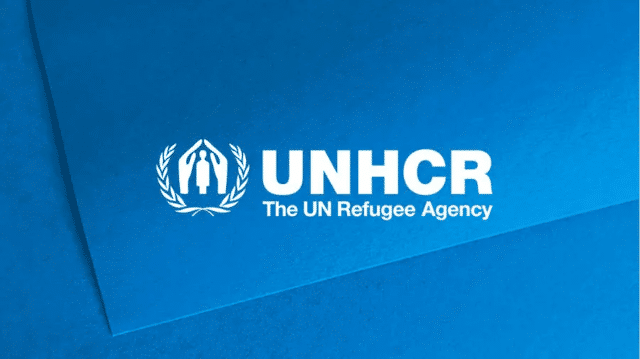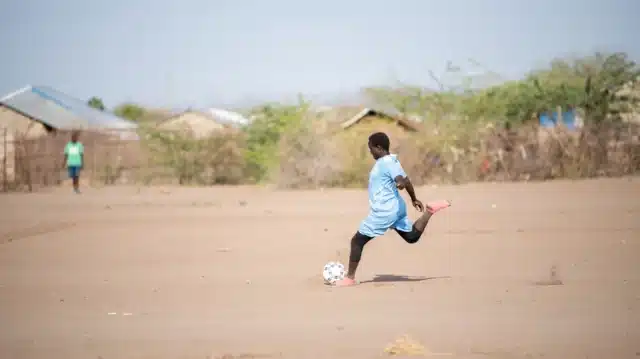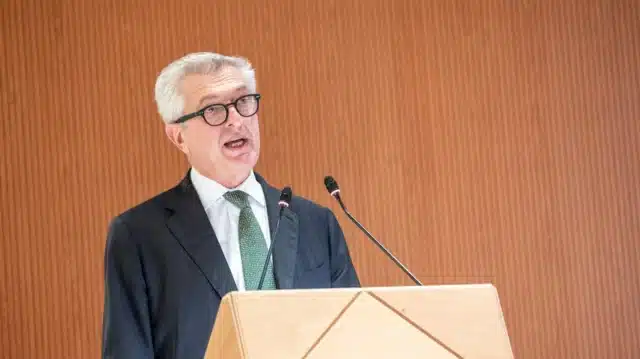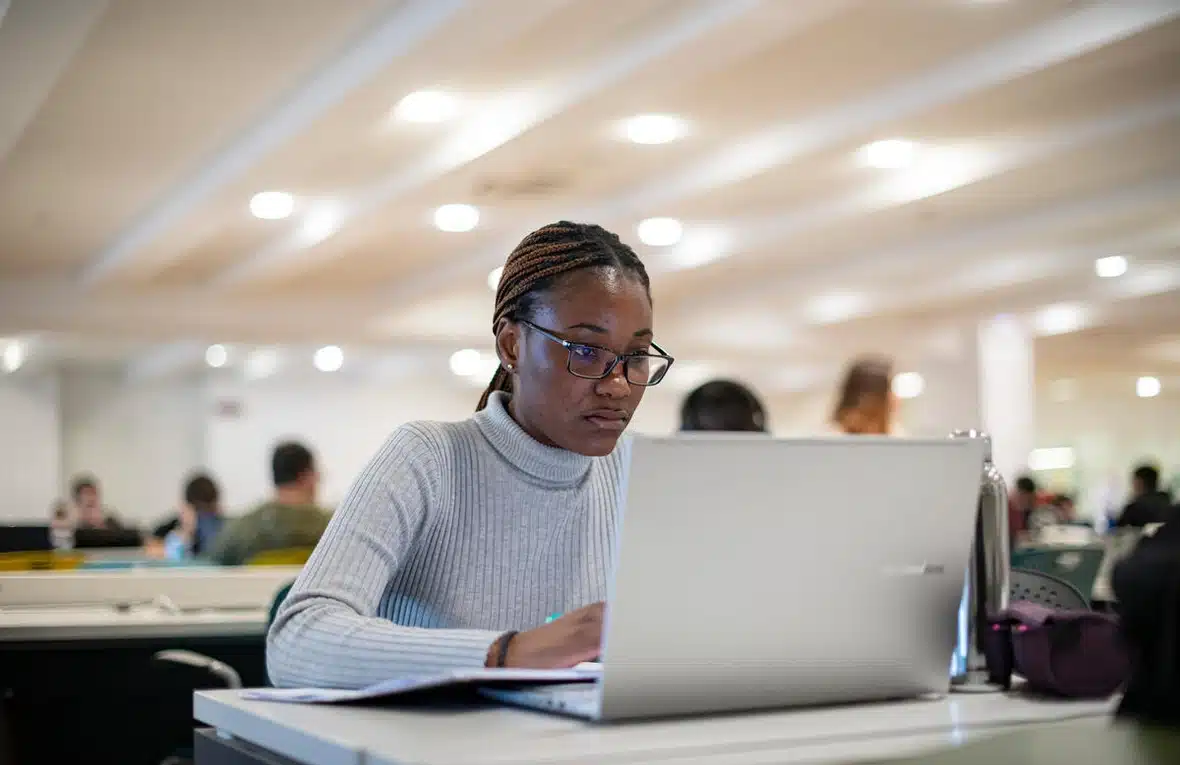
Bernice Kula-Kula, a refugee from the Democratic Republic of the Congo and a master’s student at the University of Cagliari in Italy, studies in the university library. © UNHCR/Agnese Morganti
This is a summary of what was said by UNHCR spokesperson Eujin Byun – to whom quoted text may be attributed – at today’s press briefing at the Palais des Nations in Geneva
GENEVA – Global enrolment of refugees in higher education increased to 7 per cent in 2023, continuing year-on-year gains in each of the past four years, according to the 30th anniversary DAFI programme report released this week by UNHCR, the UN Refugee Agency.
The enrolment rate represents a significant increase from 1 per cent reported in 2019. Among factors contributing to the rise are the steadfast commitment of education and government stakeholders that has led to increasing support from higher education institutions in host countries, which continue to offer places or reduce fees to ensure more equitable access for refugees; ongoing improvements in data collection; and the expansion of the flagship Albert Einstein German Academic Refugee Initiative, known as the DAFI scholarship programme.
Last year, the DAFI programme granted scholarships in 56 countries to more than 9,000 refugee students from 50 countries – an increase of nearly 1,000 students from the year before. In 2022, 43 per cent of the scholars were women – the highest rate ever.
In many countries of asylum worldwide, refugees continue to struggle to access higher education on an equal footing with nationals owing to a lack of inclusive educational policies, capacity constraints, prohibitive course fees and other administrative or bureaucratic impediments.
In the countries in which it operates, the DAFI programme is sometimes the only available mechanism for refugees to access tertiary education. Generously funded by the German government since 1992, the programme has supported more than 24,000 students and is the cornerstone of UNHCR’s global education strategy to achieve and exceed 15 per cent enrolment of refugees in higher education by 2030 (“the 15by30 target”).
With the current 7 per cent enrolment rate representing a halfway mark in reaching this target, UNHCR is calling for increased investment to expand higher education opportunities.
Ahead of this year’s Global Refugee Forum – the largest gathering on refugee issues, to be held in December – UNHCR is urging states and the private sector to come forward with commitments to increase funding for and access to higher education. Contributions can be made to UNHCR’s 15by30 global pledge on refugee higher education and self-reliance.
Scholarship programmes that specifically support refugees, such as DAFI, are vital for both refugees and the communities that host them – enabling forcibly displaced students to continue their schooling, secure employment and contribute to their host countries. Many DAFI scholars and graduates have already put their education and skills into action by securing leadership positions, starting companies, obtaining employment or advancing innovation and research that can improve lives around the world.
The latest annual DAFI report celebrates 30 years of the scholarship programme. It is a snapshot of the programme and refugee tertiary education, including reflections from more than 30 DAFI scholarship recipients. They focus on the moment that inspired them to study, their work leading projects in the arts, sciences and community development, and the organizations and initiatives they have founded or plan to pursue.
For more information on this topic, please contact:
- In Geneva, Eujin Byun, byun@unhcr.org, + 41 79747 8719
